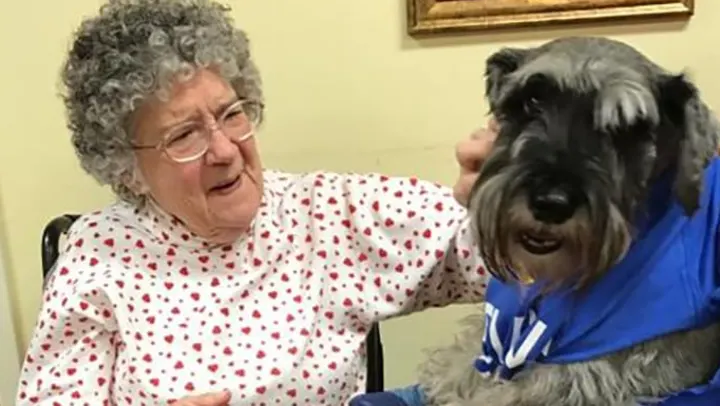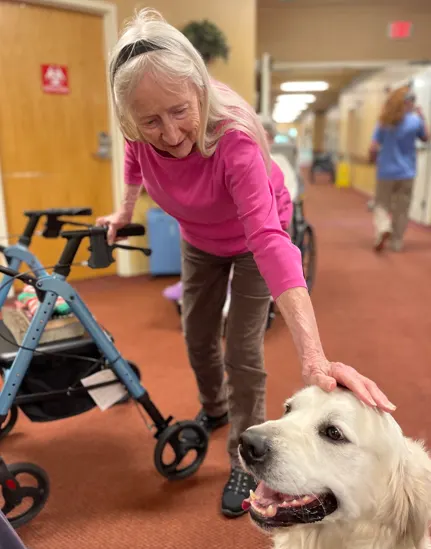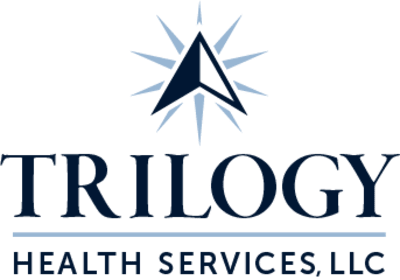
By Team Trilogy
“Happiness is a warm puppy!” This charming sentiment was penned by venerated cartoonist Charles Schulz back in 1962. Walk into any Trilogy Health Services campus during a pet visit, and you’ll quickly agree. It’s universally accepted that pets bring joy to those around them. Indeed, regular interaction with pets has demonstrated numerous emotional and physiological benefits, and for the elderly, this translates into an additional source of healing that can directly impact quality of life. Whether it’s a Labradoodle, a parrot or a small rabbit, these cute, cuddly creatures each bring their own unique health benefits. For individuals with cognitive deficits such as Alzheimer’s disease, these benefits can be even more profound!
Individuals with memory loss often experience their own unique challenges that include anxiety, agitation, depression, and late-day confusion known as sun downing. Presenting these individuals with a visiting pet has proven to repeatedly relieve these difficulties. Some physiological affects — including a drop in heart rate, lower blood pressure and reduced stress — occur when individuals merely touch dogs. Additionally, those who have begun to isolate, or have diminished capacity for verbal communication as part of their disease process, have demonstrated reduction in loneliness and depression and increased socialization, engagement and verbalization when pets are regularly brought into their environment. The health-boosting outcomes don’t stop here. The presence of an animal is associated with reduced need for medication, improved physical functioning, improved vital signs and improved nutritional intake.

Even physical therapy efforts may become more effective when pets are used to motivate someone needing increased walking or range of motion exercises. Physical therapists relate that residents walk twice as far when they’re with animals. They want to reach out and touch the animals as part of the therapy, resulting in increased mobility and dexterity. Occupational therapists may use dogs to work with rehab residents on fine motor skills: brushing the dog or taking the collar on and off. The animals even assist with speech therapy, by calling the pet’s name.
Realizing the myriad of benefits associated with animal interactions for those experiencing memory challenges, Trilogy is committed to scheduling pet therapy as a regular service offering for our residents. A variety of animals are regular visitors to many of our campuses, including our specialized care settings for those living with dementia. Witnessing the residents blossom while interacting with animals is all the evidence that is needed to continue these efforts!
Want to learn more about how we keep our minds active and engaged? Visit our Memory Care page located here!

